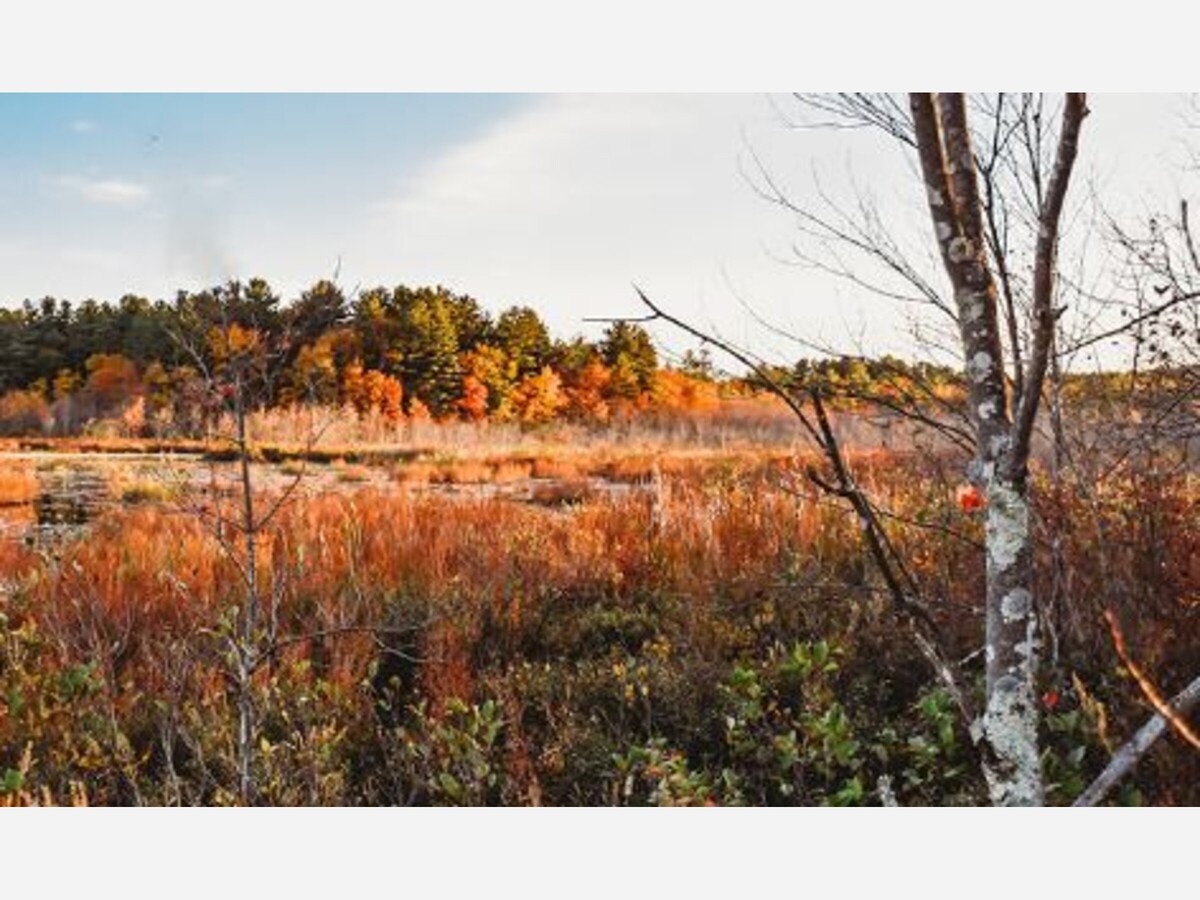Image

Above, Stony Brook Wildlife Sancutary, Norfolk (Mass Audubon Image)
As #OptOutside again saw more people choose to spend the day after Thanksgiving outside in nature versus in line for Black Friday deals, a new survey has found that Massachusetts residents from every region of the Commonwealth overwhelmingly support additional public funding for land conservation and outdoor recreation that protects land, air, water, and habitats that allow both people and wildlife to thrive.
The #OptOutside movement started in 2015 when some retailers closed on Black Friday to allow their employees and customers to spend more time outside. This survey’s findings confirm what we know after living through two-and-a-half years of pandemic: that residents of the Commonwealth value time spent outdoors; use nature to improve their mental health; and are eager to invest in outdoor recreation and conservation.
The phone survey of 850 Massachusetts residents was conducted in March 2022 by Responsive Management, an independent non-partisan survey organization. It was funded by the Massachusetts Division of Fisheries and Wildlife with support from Mass Audubon, The Nature Conservancy in Massachusetts, Trout Unlimited, and The Trustees of Reservations. An executive summary of the results can be found here.
More than two-thirds (68%) of the 850 Massachusetts residents who were surveyed believe more must be done to conserve land, water, and wildlife habitat across the state. This renewed emphasis on protecting the outdoors was evident when respondents were asked to rank initiatives on a scale of 1 to 10 (with 10 being most important). Protection of water quality rated the highest (9.8) followed by air quality (9.2), endangered species (9.1), providing all communities access to natural areas for outdoor recreation (9.1), and conserving and restoring fish and wildlife habitat (9.0).
The role of the outdoors to mitigate climate change was also a prominent issue identified in the survey, with respondents ranking “using nature to reduce climate risk” a 9.1 out of 10.
“It is clear from this survey that Massachusetts residents deeply value clean water and air, public health, recreation, and healthy fish and wildlife, all of which are being impacted right now by a changing climate,” says Deb Markowitz, state director for The Nature Conservancy in Massachusetts. “Fortunately, investing in land conservation and nature-based solutions to address the impacts of climate change supports all these outcomes and more. The local open spaces residents will enjoy as they get outside today, and every day, are also the key to a more resilient future for our communities.”
When asked to rank nature’s benefits on a scale of 1 to 10, respondents clearly view the outdoors as a vital component of their physical and mental health. Increased happiness, improved physical health, better emotional outlook, and reduced stress all scored an 8.8 or above. Also, interest in recreational outdoor activities remains high, with three-quarters saying they are very interested in traversing nature trails, two-thirds wanting to view wildlife, half being interested in birdwatching while hiking, and slightly less than half wanting to swim and/or canoe in natural waters.
Mass Audubon President David O’Neill was thrilled to see that a priority recommendation of the survey was to provide greater access to nature for everyone. “This timely report highlights the barriers, physical, financial, and cultural, that have kept too many people from enjoying the health and recreational benefits that parks, large landscapes, and other open spaces provide. This survey should serve as a strong reminder to elected officials and other leaders that we have a responsibility—and opportunity—to build a more inclusive, more vital community of conservationists, recreationists, and advocates for nature,” O’Neill said.
Respondents also say they would support directing more money to conservation, with nearly 80% expressing strong or moderate support for additional revenue via lottery funds, 77% supporting designating a portion of existing state sales tax on sporting goods and outdoor recreational equipment to preserve the outdoors, and 73% supporting additional federal tax revenues.
These findings are timely because the $4 billion economic development bill signed into law by Governor Charlie Baker earlier this month includes $175 million set aside for conservation measures, including $100 million for open space and ecological restoration and an additional investment of $75 million for open space, recreation, and climate resilience in Environmental Justice Communities.
“The results of this survey go hand-in-hand with the resurgence of interest in outdoor activities following the pandemic, making it clear that protecting our natural resources is top of mind for Massachusetts residents from the Cape to the Berkshires,” said Trustees Interim President and CEO Nicie Panetta. “As we invest to combat climate change and preserve unique outdoor places of beauty and biodiversity, it’s vital for policy- and decision-makers to know that these efforts are a key priority for the public we serve.”
Massachusetts residents clearly and strongly support conservation and outdoor recreation efforts, according to the survey, for reasons ranging from improved mental health to increased recreational opportunities, such as kayaking and fishing.
“The sportsmen and sportswomen of Trout Unlimited are excited by the commitment to conservation and habitat restoration, which is leading to more fly-fishing opportunities for wild trout in Massachusetts’ cold-water rivers and streams,” said Paul Beaulieu, vice chair Environmental Affairs at the MA Council of Trout Unlimited. “TU is proud to partner with other conservation agencies to help support the mission we all share with MassWildlife."
All the conservation organizations involved with this survey are grateful for MassWildlife’s leadership and are heartened by the public’s strong support for the outdoors as well as the enthusiasm for long-term funding that will connect more people and communities with nature. This kind of investment would bolster the state’s commitment to climate resilience initiatives to build a better, more sustainable Massachusetts, now and into the future.